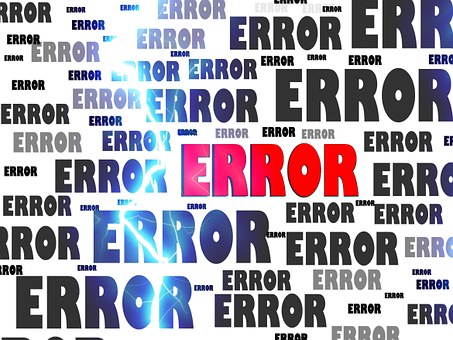
Autor: Jimena González Sanz.
Hello again everyone! Here we are again, and this time we want to present some of the most common mistakes most of us make when writing or speaking. Keep on reading because sometimes overusing might have made you not realize you are one us so let´s begin!
HOW vs WHAT. It is quite common that whenever we think and translate a sentence such as ¿cómo se dice ….? and think How is the word…. in English? Instead, you should say what is the word…. in English? Alternatively you can say, How do you say…..in English?
TAKE vs HAVE. In English it is used have and not take when you refer to a drink, it can be a coffee, a beer or a glass of soda. You´d better use have and not take unless you want to be chased by the waiters.
DO vs MAKE. It is very difficult to distinguish for Spanish speakers because hacer is always the same in Spanish but to make it a little clearer we could say that DO is used for an action or a job while MAKE can be the synonym of CREATE / PRODUCE. For example, we do not say DO the bed, MAKE sport, DO a cake or DO a mistake but MAKE THE BED; DO sport, MAKE a cake and MAKE a mistake.
VERBS THAT NEED TO. Some of these are: explain, listen and say. So you need to say explain to me, listen to me or say to me and not explain me, listen me or say me (which is what we would normally say in Spanish explícame, escúchame o háblame.)
TO BE vs TO HAVE. It is one of the most common mistakes for beginners. If you consider that in Spanish we do normally say tengo… años the verb we might think we need to use is the verb to have when in fact it is going to be the verb to be the correct one. So please refrain yourself from using I have .. years old and instead be correct and use I am ….years old.
PEOPLE is a plural word in English . Whenever I come across to it and I wonder what to use if is or are I think about that song of The doors: People are strange and my doubts are solved.
TO BE AGREE vs AGREE. In Spanish we say estoy de acuerdo and automatically we accept the verb to be needs to be used while in fact agree means by itself estar de acuerdo so it is easier to use, don´t you agree?
These are common mistakes to keep in mind when using English so please remember and try to avoid them if you want to sound like a real native. They can be hard to learn at once but the first step is to realize if we are making these mistakes or not. Then, with a little practice, we are sure you will progress and they will be a part of your learning experience. Hope you have enjoyed reading us today! See you all next time!
Jimena González Sanz.



